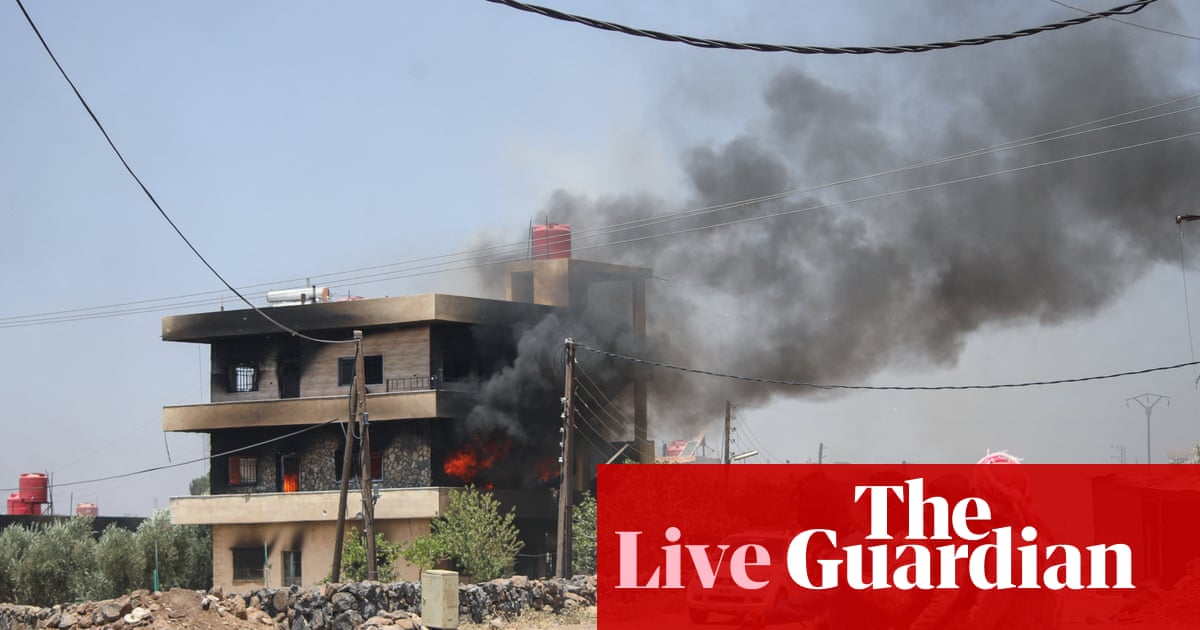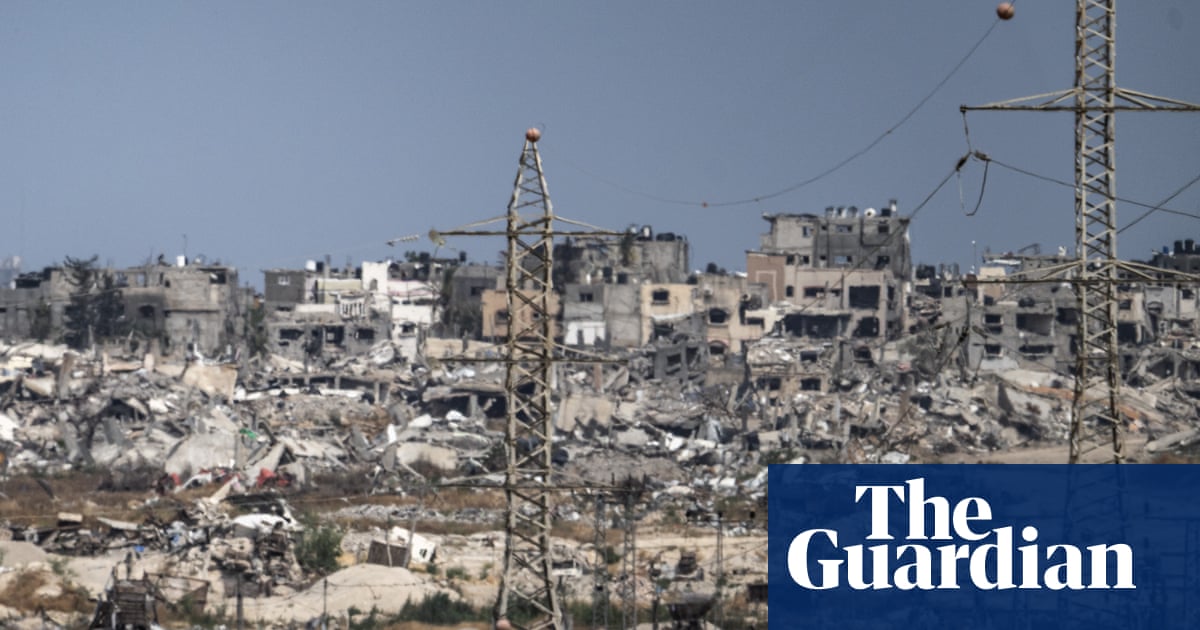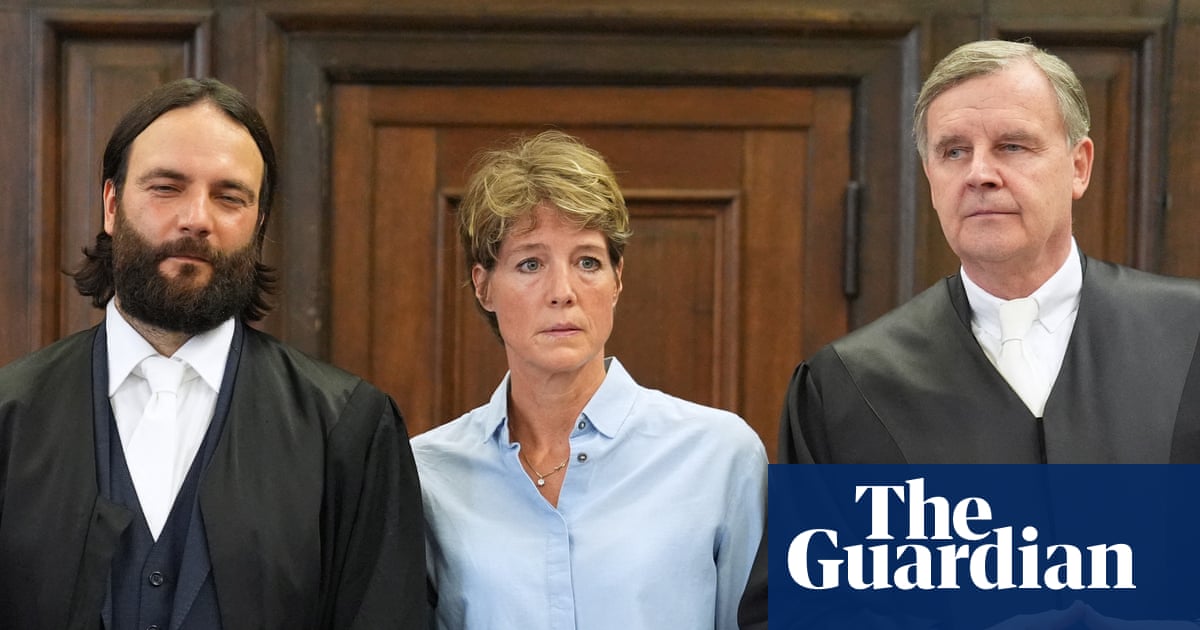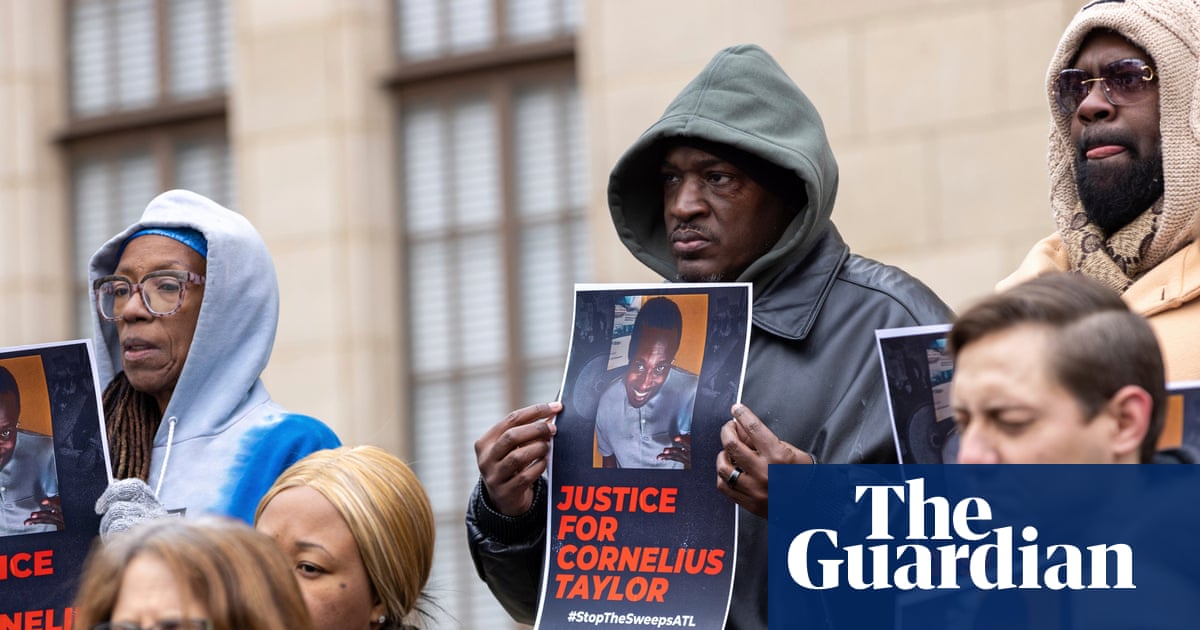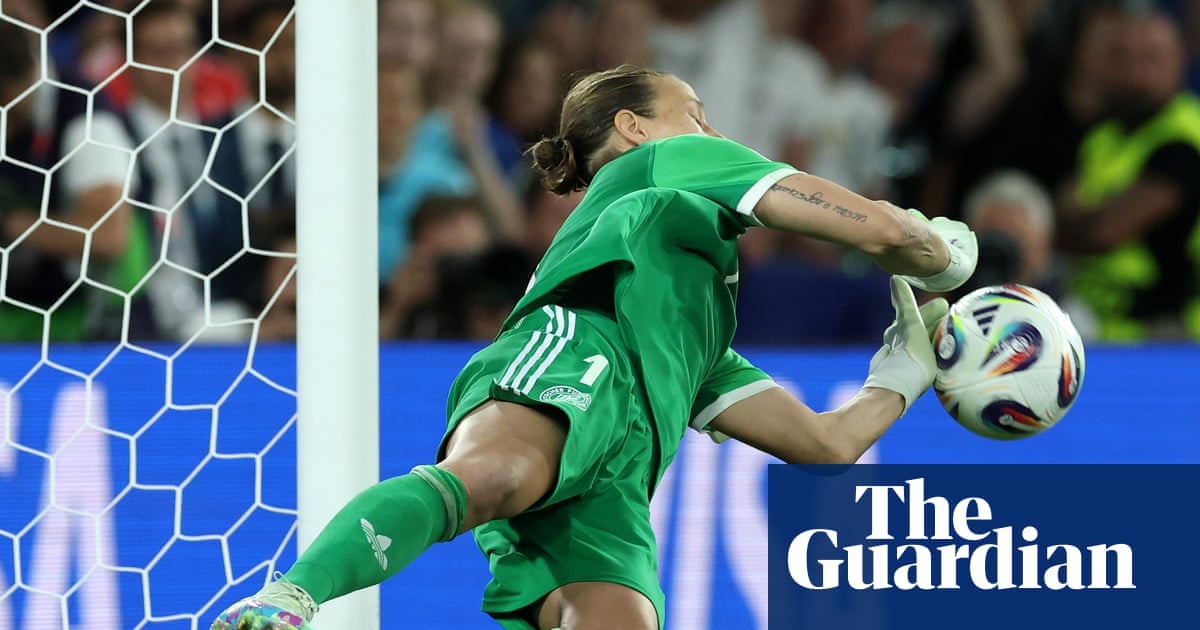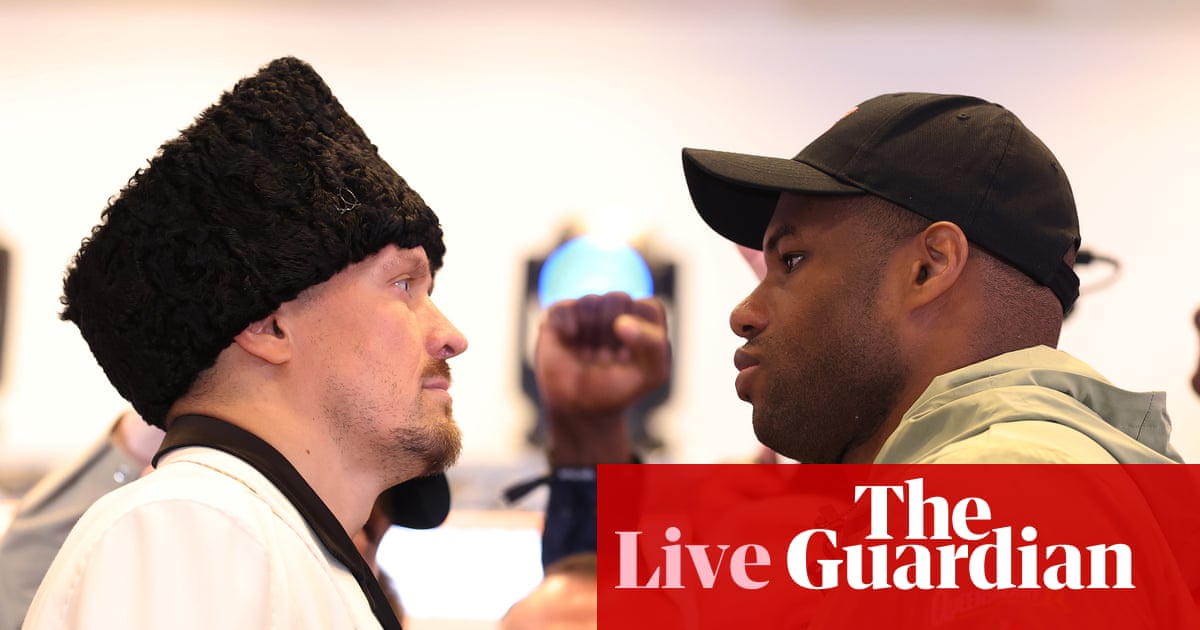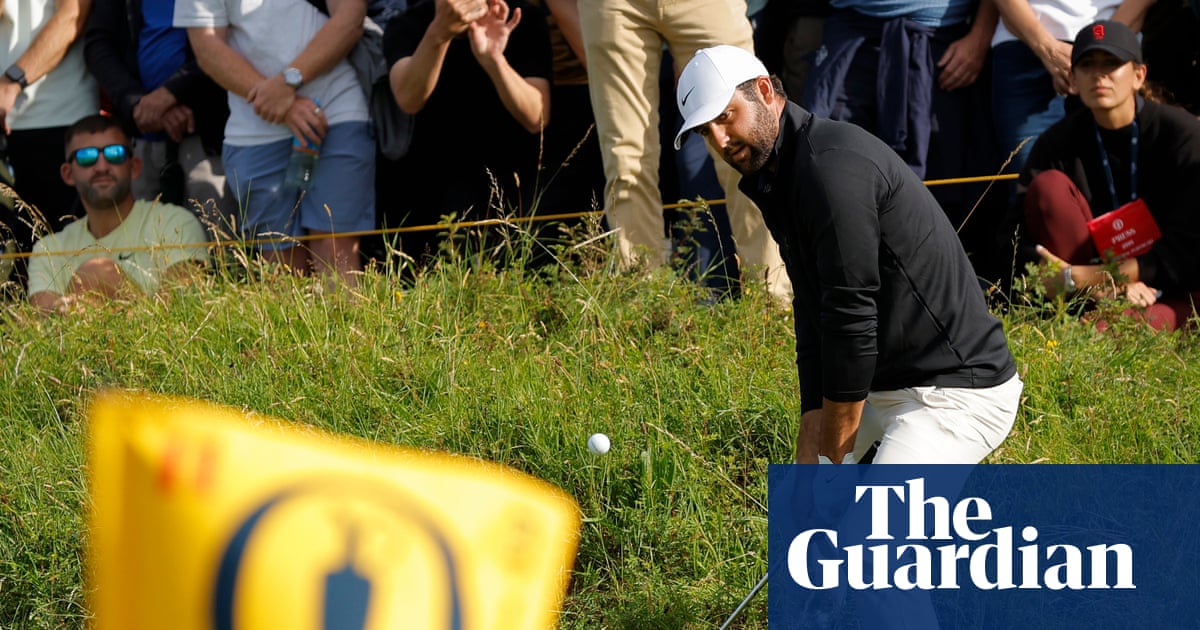The quest for peace in major conflicts has rarely been so desperate and so seemingly futile. In Gaza, talk of ceasefires, truces and pauses typically ends in tears. In Ukraine, the war is now well into its fourth year with no end in sight, despite Donald Trump’s new 50-day deadline. Syria burns anew. Sudan’s horrors never cease. Last year, state-based conflicts reached a peak – 61 across 36 countries. It was the highest recorded total since 1946. This year could be worse.
The sheer scale and depravity of war crimes and other conflict-zone atrocities is extraordinary. The deliberate, illegal targeting and terrorising of civilians, the killing, maiming and abduction of children, and the use of starvation, sexual violence, torture and forced displacement as weapons of war have grown almost routine. Israel’s killing last week of children queueing for water in Gaza was shocking, made doubly so by the fact that scenes like this have become so commonplace.
“Blessed are the peacemakers,” said Saint Matthew, but today, impartial mediators are in wickedly short supply. Surely everyone agrees: murdering and massacring innocents is morally indefensible. So why on earth is it allowed to continue? This same question is shouted out loud by grief-stricken parents in Rafah, Kyiv and Darfur, by UN relief workers, in pulpits, pubs and parliaments, in street protests and at Glastonbury. Why? WHY?
The curse of moral relativism provides a clue. The fact is, not everyone does agree. What is absolutely morally indefensible to one group of people is relatively permissible or justifiable to another. This has held true throughout human history. Yet today’s geopolitically and economically divided world is also ethically and morally fractured to a possibly unparalleled degree. Agreed, observed standards – what the American writer David Brooks terms a “permanent moral order” – are lacking.
The collapse of the international rules-based order is mirrored by this crisis of the moral order. Without accepted universal principles, the peaceful settlement of conflicts, foreign or domestic, becomes highly problematic. “We have no objective standard by which to determine that one view is right and another view is wrong. So public arguments just go on indefinitely, at greater levels of indignation and polarisation,” Brooks argues. What’s left is coercion and manipulation.
No individual better personifies the moral-relativist confusion permeating contemporary life than Trump, the master coercer and manipulator. He believes, for example, that he deserves the 2025 Nobel peace prize. Yet Trump, in collusion with Israel, did bomb Iran recently, and killed numerous civilians. In his morally muddled view, that illegal act of aggression was justified because it restored the peace he had just broken.
In a world wedded to war, Alfred Nobel’s venerable peace prize looks increasingly anachronistic – and politicised. Barack Obama won it in 2009 for doing nothing. If only Trump would do nothing for the next four years. Worse, he has been nominated by Israel’s Benjamin Netanyahu, arch foe to peace and morality. It might be preferable to replace the prize with a Warlord of the Year award – and put a bounty on the winner’s head.
Making a moral case for peace can be confusing, even controversial; ask any church or mosque leader. For many people, it seems, morality is a dirty word these days. It’s fungible, negotiable and emotive – a matter primarily of individual choice and cultural belonging, not of duty, obligation or fidelity to a higher law. How else to explain why so many Americans turn a blind eye to Trump’s astounding moral turpitude, illustrated again by the Jeffrey Epstein affair? Social identity trumps social conscience.
Much of the Russian public suffers from a similarly chronic moral deficiency when contemplating Vladimir Putin’s devastation of Ukraine. Intimidated dissenters avoid the subject. Others believe the disinformation fairytales spun by regime-controlled media. The majority inhabits a state of profound ignorance about the crimes committed in their name. When it’s over, Russians may claim, like Germans in 1945, that they didn’t know. Amorality is mitigated by mendacity.
Israel’s denial of peace in Palestine also comes at a high moral cost. Its reputation is in shreds, its prime minister has an arrest warrant issued against him for war crimes. Antisemitism is surging internationally as a direct result. How can so many Israelis live with their army’s Gaza rampage, with the spectre of 58,000 corpses? Some say it would all stop if only the last hostages were freed; others that all Palestinians are Hamas. Some on the far right, forgetting their country’s history, suggest the idea of a Palestinian nation is fiction. They want all 2 million of Gaza’s residents caged in one huge concentration camp.
Many Israelis passionately disagree. They desire peace. Their failure to force a change in government policy is moral as well as political. Also at fault are Americans, Russians and all in Britain and Europe, politicians and the public, who fail to speak out, who look the other way, who excuse the inexcusable for reasons of state or personal comfort – or who claim that murder and mayhem, wherever they occur, are relatively morally tolerable if committed, as argued by Saint Thomas Aquinas, in the prosecution of a “just war”.
This very modern failure, this retreat into subjective, made-to-measure morality, this renunciation of shared responsibility, is reversible. Universal ethical standards still apply. They are defined by the Geneva conventions, by other secular instruments of international law, through religious faith and through the social contract. They should be respected and strengthened. They are necessary, sometimes inconvenient truths.
Ordinary people in ordinary times may pick and choose their moral battles. But ending major conflicts, and easing the suffering of millions, is a moral imperative that demands a determined collective response from all concerned. That way lies peace. That way lies salvation.
-
Simon Tisdall is a Guardian foreign affairs commentator

 4 hours ago
3
4 hours ago
3
